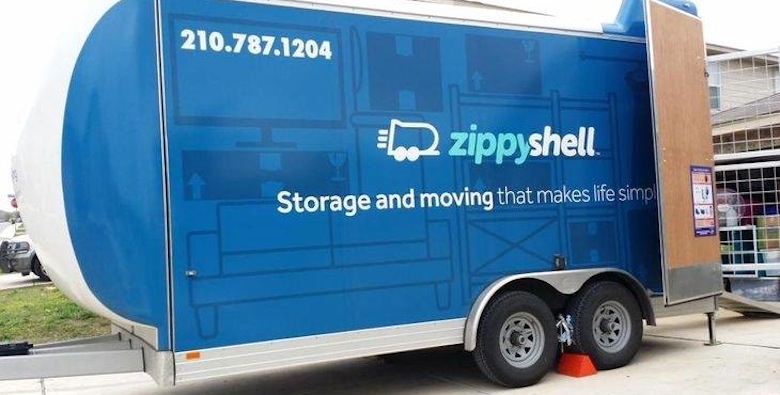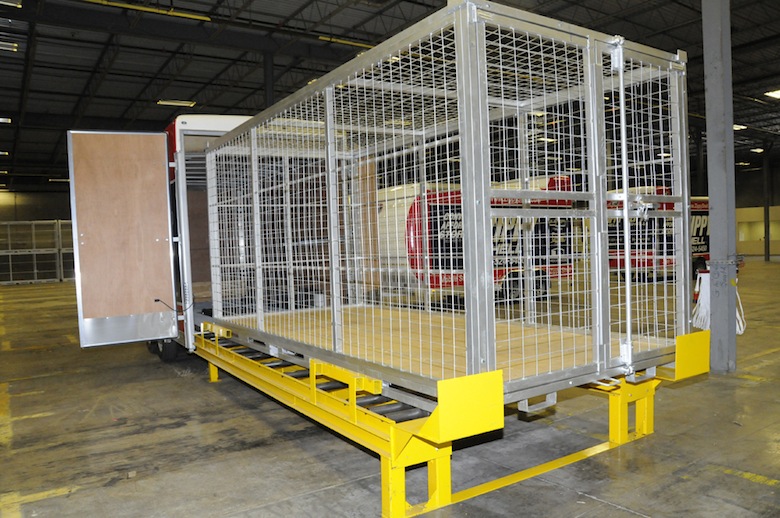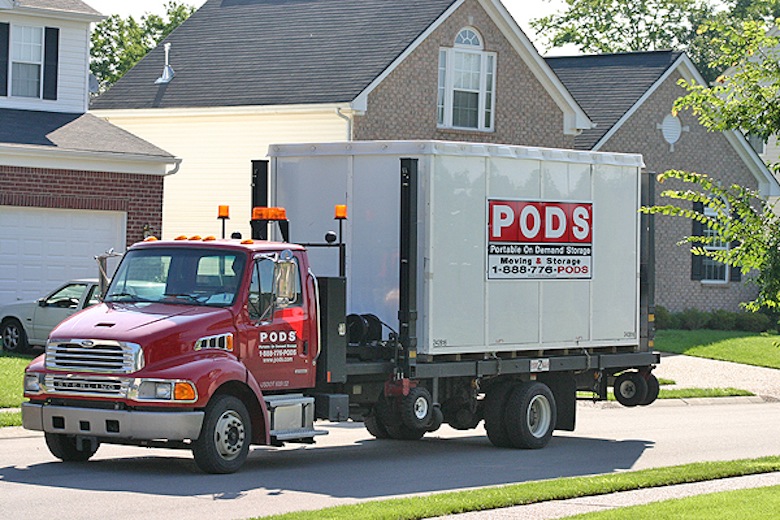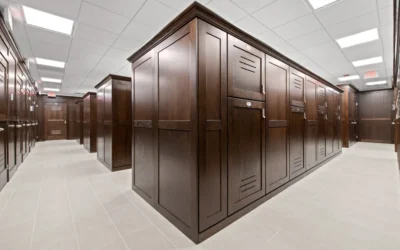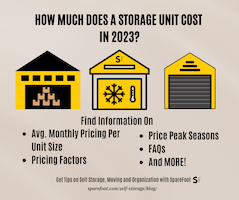With a fresh investment of $25 million, moving and storage company Zippy Shell is embarking on rapid expansion in the U.S. bolstered by a national marketing campaign.
The Washington, DC-based company positions itself as a lower-priced alternative to portable storage companies like PODS as well as a more convenient alternative to traditional self-storage.
Rick Del Sontro (pictured at top), CEO of Zippy Shell, told The SpareFoot Storage Beat that his company plans to spend the money on a national branding campaign, company acquisitions and more locations. The branding campaign, debuting this month, features TV and radio ads.
“Our biggest challenge today is getting people to know that we exist,” Del Sontro said.
The recent funding came from Palo Alto, CA-based private investment firm Virgo Investment Group. As part of the deal, Virgo founding partner Mack McNair is joining Zippy Shell’s board as chairman.
Born in Australia
Gareth Taylor founded Zippy Shell in Australia in 2007. The company delivers a storage container inside a fiberglass trailer directly to a customer’s home or business. Once it’s packed, the container is stored in a warehouse or loaded onto a tractor-trailer for a move.
In 2009, Taylor pitched Del Sontro on bringing Zippy Shell to the U.S. “At first, I thought he was crazy off his rocker,” Del Sontro said.
Del Sontro, who previously worked in residential real estate, said he thought that storage was a boring business and that moving wasn’t much better. But then he did his research.
“The industry made a lot of sense to me. I decided it was probably worth engaging these guys to see what it’s all about,” Del Sontro said.
In 2010, Del Sontro and Taylor launched Zippy Shell’s U.S. arm, which has grown primarily through franchising.
Ready for growth
With the new funding, the company plans to expand to 125 U.S. locations by the end of 2015, Del Sontro said. Markets where Zippy Shell is active now include New York City, NY; Philadelphia, PA; Houston, TX; Chicago, IL; Denver, CO; and Los Angeles, San Diego and San Francisco, CA.
“Over the next five years, it is safe to say we would like to be in well over 200 markets,” Del Sontro said.
The company’s 56 franchisees own the bulk of Zippy Shell’s 106 locations. Zippy Shell owns five locations and plans to add five corporate-owned stores by the end of this year.
More moving
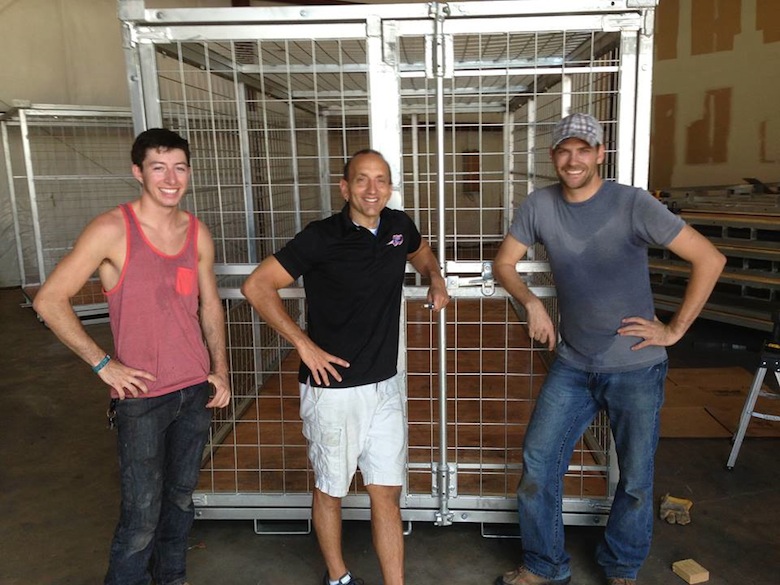
Rick Del Santro (center) says Zippy Shell should be in more than 200 U.S. markets by the end of 2015.
By adding more locations across the country, Del Sontro said, Zippy Shell will be able to accelerate growth of its moving business. A year ago, he said, Zippy Shell couldn’t accommodate about two-thirds of the company’s customers because it didn’t have enough market saturation to handle moves to certain regions.
With more locations, Zippy Shell will be able to capture more of those customers. For now, Del Sontro said, franchisees will contract with local movers to handle relocations in cases where a Zippy Shell location isn’t available on the tail end of a move.
“I would say probably 15 percent of our customers are moving customers. I believe over time that will climb to a much higher percentage,” Del Sontro said.
Convenience vs. cost
In the meantime, most of Zippy Shell’s customers are using its service as an alternative to traditional self-storage. Oftentimes, Zippy Shell’s service is only slightly more expensive than rental of a 10×10 or 10×15 self-storage unit.
According to DCInno, Zippy Shell charges $199 a month for storage of a 7×15 container in the DC suburb of Rockville, MD, plus a $99 one-time delivery fee. The cost to rent a 10×15 unit at a facility in that area ranges between $186 and $302.
“We are definitely going after people that are predisposed to using traditional storage, but would use us … because the convenience is so much better,” Del Sontro said.
Location isn’t everything
The company holds some competitive advantages over traditional storage operators when it comes to expansion.
“So few storage facilities are getting built because it is hard to get permitting,” Del Sontro said. “If you do get [approved], it has to look like Disneyland.”
Zippy Shell and its franchisees can buy or lease warehouse space anywhere in a market and serve customers within a 20- to 30-mile radius. “It doesn’t matter to the consumer where our facility is,” Del Sontro said.
Competition for storage operators
Self-storage consultant Jeff Kinder, operator of Advantage Storage, said he doesn’t view Zippy Shell and its rivals as direct competition for traditional storage operators.
“Quite frankly, we compete with a lot of things in the self-storage business, including your mother’s basement or your uncle’s garage,” Kinder said.
As with traditional storage, Zippy Shell has plusses and minuses for consumers, according to Kinder.
“It does take some overall storage off the market as far as clients using us or them, but it’s a separate market niche. I think it’s a great service for people who want to pay for that,” Kinder said.
One advantage of traditional storage: Customers typically can access their units whenever they want. On the other hand, Zippy Shell customers must schedule pickups and drop-offs, and must pay extra for repeated retrievals of stored items.
Del Sontro said a large segment of storage customers don’t need regular access. “Customers just need to weigh the risk and reward of portable storage,” he said.
Taking on PODS
Ultimately, Zippy Shell’s biggest competition is other portable storage companies, with the largest rival being PODS. Currently, PODs operates in about 150 U.S. markets.
“We’ll end up being in a lot more markets than they can be because our model works with smaller [population] numbers and our cost of capital equipment is significantly less,” Del Sontro said.
After 17 years in business, PODS controls about 1 percent of the U.S. storage market. “Most consumers don’t even know that mobile or portable storage exists as an option,” Del Sontro said.
Strategic partner
Despite the lack of awareness, portable storage is a big business. In February, Bahrain-based private equity firm Arcapita sold PODS to the Ontario Teachers’ Pension Plan for more than $1 billion.
It turns out that Virgo, Zippy Shell’s new source of venture capital, was one of the financiers of Arcapita’s $430 million purchase of PODS in 2007.
In a news release, Mack McNair, the Virgo co-founder, said: “We have significant prior experience in the portable moving and storage industry and I can say, without hesitation, that Zippy Shell is a stronger, more customer-friendly business model.”
Top photo courtesy of the Houston Chronicle
